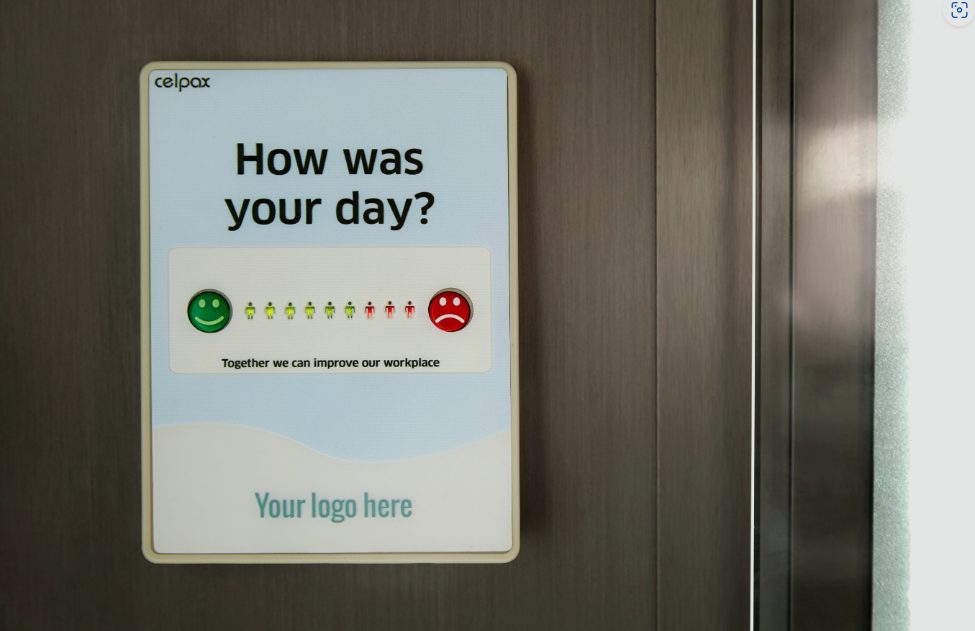Boosting Employee Engagement And Productivity
4 Mins Read
Published on: 23 October 2023
Last Updated on: 01 October 2024

toc impalement
Creating a thriving workplace culture is essential to building a motivated and engaged workforce. When employees are engaged and satisfied, not only are they more likely to stay with their current employer, but also more likely to be productive and efficient workers.
In this article, we’ll explore a few key strategies to boost employee engagement and productivity, resulting in a harmonious and effective workplace.
Manage Absences Effectively
One key factor to consider when improving employee engagement and productivity is the effective management of employees’ absences.
Implementing absence management software can reduce confusion and inconsistencies in handling leave requests, ensuring that employees feel supported and valued when they need to take time off, and keeping productivity levels on track.
Encourage Open Communication
Fostering open and transparent communication is a fundamental part of building trust and engagement in the workplace. Employees who feel they can openly express their thoughts, ideas, and concerns are more likely to feel valued and understood.
Managers can facilitate open communication by keeping communication lines open and accessible, actively seeking feedback and suggestions from staff, being responsive to employee questions and concerns, and encouraging collaboration and team/group discussions.
Employee Growth And Development
Investing in the growth and development of your employees not only demonstrates that you value their skills and potential, but also provides opportunities for them to become more engaged and productive. A focus on continuous learning should be an essential component of your workplace culture.
This can involve providing ongoing training and development programs, offering mentorship and coaching opportunities, supporting employees in pursuing further education or certifications, and encouraging cross-functional skill development.
Recognize And Reward Contributions
Appreciation and recognition go a long way in motivating employees to stay engaged and committed to their work. Acknowledging their accomplishments and contributions, both big and small, helps facilitate a positive workplace culture.
Consider implementing a variety of recognition strategies. Try publicly acknowledging employees during meetings or company events, offering regular feedback and praise for a job well done, implementing a company-wide recognition program, or providing non-monetary rewards such as time off or flexible work arrangements.
Foster A Positive And Inclusive Workplace Culture
A positive and inclusive workplace culture is essential for cultivating employee engagement and productivity. When employees feel valued, respected, and included, they’re more likely to be loyal and committed to their organization.
Some methods for cultivating a positive and inclusive culture include implementing diversity and inclusion training programs, creating a diverse and inclusive hiring process, encouraging team-building activities and events, and promoting work-life balance and wellness initiatives.
Lead By Example
Leaders and managers play a pivotal role in shaping workplace culture and employee engagement. By demonstrating commitment, enthusiasm, transparency, and empathy, managers can instill these values in their employees and set the stage for a positive work environment.
Some ways to lead by example include displaying a strong work ethic and consistently putting in effort, maintaining a positive attitude and showing resilience in the face of challenges, being accessible and engaging with employees at all levels, and modeling open communication and effective problem-solving.
Autonomy And Empowerment
Encouraging employees to take ownership of their work and make decisions can significantly increase their engagement and productivity.
Empowering workers to take responsibility for their tasks fosters a sense of autonomy, leading to greater job satisfaction and better overall performance.
To promote this, managers can delegate responsibilities and trust employees with decision-making, offer guidance when needed, but avoid micromanaging, provide employees with the tools and resources necessary to succeed, and encourage innovative thinking and creative problem-solving.
Measure And Evaluate Engagement
Understanding employees’ current engagement levels can help inform and refine your organization’s approach to boosting engagement and productivity.
Regularly measuring engagement through surveys or informal feedback mechanisms can provide valuable insights and highlight areas that need improvement.
For a more comprehensive approach, you might also consider utilizing a learning needs analysis template to better understand the training and development requirements of your workforce.
To effectively measure engagement, conduct regular employee engagement surveys, facilitate open conversations and feedback sessions, monitor key performance indicators that correlate with engagement, and make necessary adjustments based on feedback and insights.
Adopt A Flexible Work Environment
Workplace flexibility is increasingly being recognized as a tool to enhance employee engagement and productivity. Allowing employees to choose their optimal work environment and schedule can significantly impact job satisfaction, work-life balance, and overall performance.
Some ways to implement workplace flexibility include offering remote work or telecommuting options, providing flexible work hours or compressed workweeks, creating a workspace that caters to different work styles (e.g., quiet areas, open collaboration spaces), and implementing policies that support employees’ personal and professional needs.
Conclusion
Boosting employee engagement and productivity is an ongoing process that involves continuous commitment and adaptation.
By focusing on communication, personal growth, recognition, inclusion, strong leadership, empowerment, flexibility, and evaluation, your organization can create an environment where employees are motivated, engaged, and eager to contribute to its success.
Additionals:


















Comments Are Closed For This Article